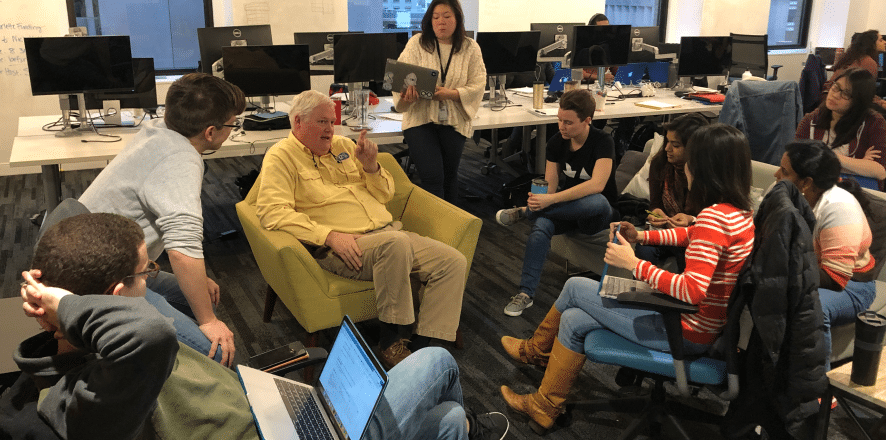While it does not receive the attention of Washington’s fiscal deficits, our nation suffers from a very real deficit in software and computer-coding skills. This shortage has a negative impact on employment and international competitiveness, the economic damage of which will only worsen over time if not addressed.
The fact is that every company will be a software company in the future. Today, businesses and consumers expect instantaneous and effortless access to information, near-instant coordination of commercial activities and processes, and the ability to tailor and fine-tune their transactions as a “market of one.”
Resource allocation becomes more important than assets, as: the world’s largest hotel chain (AirBnB) owns no hotel rooms, the world’s largest taxi company (Uber) owns no cars, the world’s largest media company (Facebook) produces no content. These businesses are new, and are driven by vision and software coding skills.
The world demands that businesses be able to transform and adjust quickly. These expectations and demands will only grow over time.
Our nation’s workforce simply does not have the software development and coding expertise necessary to provide the needed products, processes, and infrastructure. Nor is it expected to have enough of these skills in the future, dampening employment and economic growth as jobs and entrepreneurial initiatives migrate to nations and regions where such skills do exist. America’s competitiveness can only continue to fade unless we recognize this problem and start putting in place the imaginative solutions needed to fix it.
According to code.org, by 2020 there will be 1 million more programming jobs available in the US than there are trained people to fill them. Delaware is not immune to this situation. In a recent 12 month period, over 1,700 IT jobs were posted in Wilmington, with many of those ultimately being filled in other cities due to the lack of qualified local applicants. The job openings are here, there are just not enough trained people to fill them.
This is why we are founding Zip Code Wilmington, a non-profit coding school. With support from more than twenty companies and encouraging words from Sen. Tom Carper and Gov. Jack Markell, Zip Code Wilmington will focus on two of the most critical programming skill shortages, Java and ASP.Net. Students do not need prior experience, but they do need motivation and a willingness to work hard. They will also need a proficiency in high-school level math and the ability to work through a robust interview process. Those who are accepted will find themselves in an intensive twelve-week programming course, with eight hours per day of instruction.
It’s not just the caliber and willingness for hard work on the part of students feeding the expectations for the school’s success. Classes at Zip Code Wilmington will be run and managed by Tech Impact, an entity with the necessary expertise and requisite experience in successfully operating such schools. The school’s corporate partners, including: Barclays, CSC, Capital One, and JP Morgan Chase, will play a dual role as they assist in setting and guiding the curriculum and make commitments to hire graduates. The goal of Zip Code Wilmington is a greater-than 90 percent placement rate into jobs with starting annual compensation of fifty-thousand dollars or more, and the school is moving ever closer to this goal for its first planned class this fall.
One of the most attractive elements of the school is that students can economically build the skills necessary for their future without having to mortgage that future. Successful students will be ready to enter the job market – and start earning good salaries – in just three months. It is expected that the approximately eleven thousand dollars of tuition will be mostly paid by the hiring companies and not the students.
Students who complete the program will not just be adding to our nation’s skill set in this important area, they will have positioned themselves for good, strong, and relatively-secure middle class careers. Perhaps some will be become entrepreneurs and provide new technologies that benefit society and provide new jobs.
Whether you are a prospective student or an employer looking for motivated employees with the programming skills your business or organization needs, you can find more information at www.zipcodewilmington.com.
Zip Code Wilmington, with its cost-effective approach to education and training, its buy-in from local employers who need employees with special skills, and the arming of students with those exact skills, is the epitome of a win-win situation.
Porter Schutt is a Partner and Head of the Delaware office at Brown Advisory, an independent investment firm. Jim Stewart is CEO of Epic Research and co-founder and former President of Juniper Bank/BarclaycardUS. Ben duPont is co-founder of yet2 & founder and managing director of yet2Ventures.
